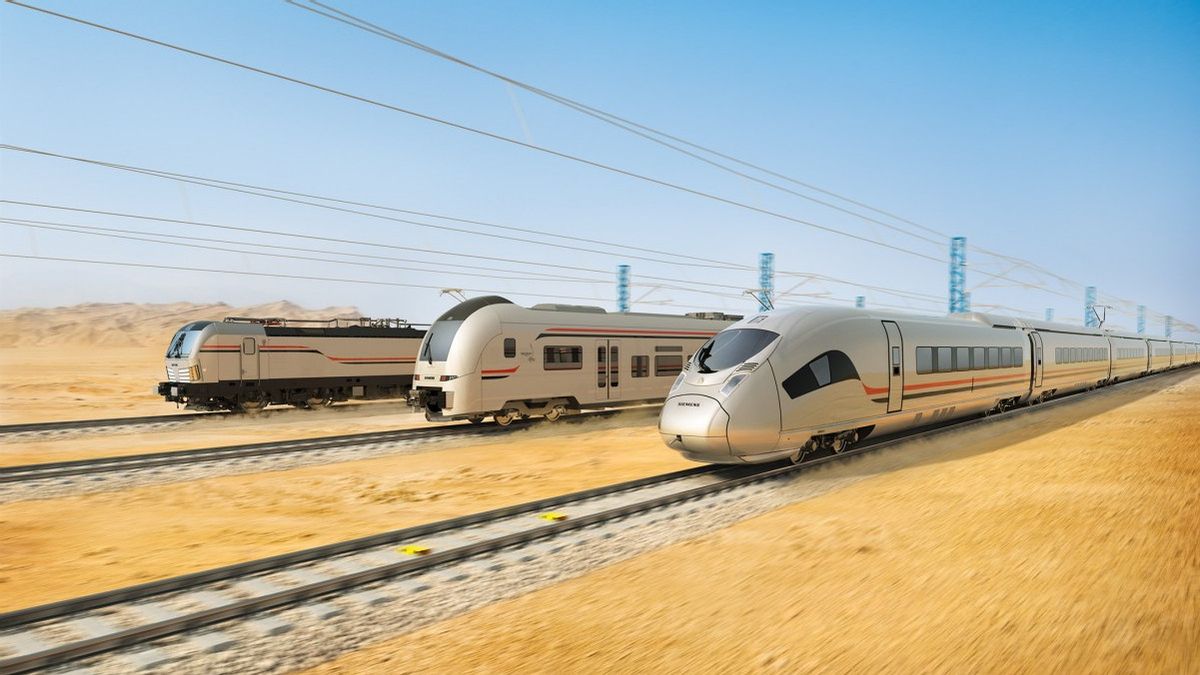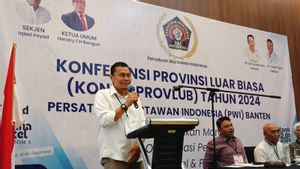JAKARTA - If nothing goes wrong, Egypt will have a network of high-speed rail services to transport passengers and cargo across the desert for the first time in the near future.
Later, Egypt will have a main high-speed and electrified railway line, which will connect Cairo to the New Administrative Capital and new cities around it.
Planned to have a network of 1,800 kilometers long, the initial 660 kilometers will be built by German company Siemens Mobility, which is trusted by the Egyptian National Authority for Tunnels (NAT).
The first line will connect the port cities of Ain Sokhna on the Red Sea to Marsa Matrouh and Alexandria on the Mediterranean. According to the company, the first part of the line will be operational in 2023.
Siemens, which partnered with Orascom Construction SAE and Arab contractors on the project, said the total contract was worth about US$4.5 billion, of which its share was around US$3 billion.

With an Egyptian population of over 100 million, it has more than doubled since 1980. Cairo, with a population of about 20 million, stretches out into the surrounding desert. High-speed rail fits into Egypt's wider infrastructure spending, including its new capital, 30 miles east of Cairo, to support this growth, as well as the Suez Canal region.
"Railways will cut travel times and that will make trains the most effective travel option," Michael Peter, CEO of Siemens Mobility, told CNN.
"In Egypt, the population is growing, the economy is growing, so it will attract more traffic and the question is what kind of transportation will people and goods use."
According to Siemens, the network will carry more than 30 million people per year, reduce travel times by 50 percent and increase transport capacity by 15 percent.
"High-speed trains will strengthen the infrastructure of the areas they pass through and help achieve urban sprawl," said Egyptian Transport Minister Kamel El-Wazir.
Equally important, this high-speed rail network will also help promote tourism activity, an industry that the country relies heavily on.
To support this program, Siemens Mobility said it will provide core technology that does not only provide one type of train, but three types at once.

Citing the official Siemens website, for this project Siemens Mobility will deliver the Velaro high-speed train, the Desiro high-capacity regional train series, and the Vectron freight locomotive.
A safe and reliable signaling system based on the latest computer-based interlocking technology and a Level 2 European Train Control System (ETCS) will be installed, as well as a sustainable and efficient energy-generating power supply system.
Furthermore, Siemens will provide and integrate the latest communication, safety and security systems that will create an enjoyable passenger experience.
Meanwhile, NAT will build civil structures, such as tunnels and bridges. To complete the project, it is said that 15,000 local jobs will be recruited to complete the project.
"Completion should be around 2027. We have good experience in implementing this type of mega project," said Peter.
In addition, Siemens says the electric system will reduce carbon emissions by up to 70 percent, compared to current emissions from car and bus transportation.
Peter added that Siemens will sign a contract to build the next two lines in the network, connecting the Greater Cairo region with Aswan, and Luxor via Hurghada to Safaga.
The English, Chinese, Japanese, Arabic, and French versions are automatically generated by the AI. So there may still be inaccuracies in translating, please always see Indonesian as our main language. (system supported by DigitalSiber.id)













